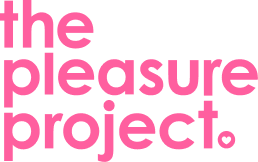Pleasure Time: Q&A with Damon Jacobs
We caught up with members from the pleasure community to get their input on all things pleasure. We also wanted to know their thoughts on the lack of pleasure mentions at international conferences, and in this case #AIDS2020. Damon has some really interesting views on pleasure, intimacy, protection – tell us what you think…
Damon Jacobs is a New York State Licensed Marriage and Family Therapist. He is an individual therapist / educator, who helps people around the world learn how to enjoy better sex and reduce fear.
Why is it important for international conferences on HIV and other sexual health issues to address pleasure?
“Most HIV transmissions are through sexual contact. The majority of HIV transmissions in the U.S. are between men having anal sex with other men. Yet conferences generally speak about HIV, transmission, and “risk” in a way that minimizes and dehumanizes the experiences and emotions of those they are trying to help. It is relevant to bring pleasure into the narrative in order to bridge the chasm between objective clinical practices and meaningful human connections. When communities at higher risk for HIV are included in these conversations, they are more likely to learn, listen, and implement strategies for enhancing sexual connection while adapting healthier practices.”
Why is the public health world so nervous about pleasure and sex positivity?
“I believe public health’s reluctance to speak about pleasure and sex at HIV conferences is a reflection of the larger sex-negative attitudes so pervasive in medical communities. Researchers are afraid of not being perceived as valid and legitimate if they show emotion, much less consideration of sexual pleasure. Women particularly are at risk of not being taken seriously if they do not present data in a monochromatic robotic tone. It is not considered “dignified” to speak with excitement and joy about research making human intimacy safer…In my opinion, that is a symptom of a male-dominated field that says you must be professionally “serious” focused OR focused on pleasure and emotions, but you can’t be both.”
What ‘pleasure message’ did you have (for AIDS2020)?
“I was intending to talk about “PrEP” not as a medical acronym for “Pre-exposure Prophylaxis,” but using the community acronym, “Proactive Responsible Empowered Pleasure.” I was going to remind participants that when they go to a presentation at IAS and hear some kind of statistic about HIV transmissions, or learn about an innovative way to prevent HIV, they are usually listening to an outcome or anticipation of pleasurable sex that includes ejaculating inside someone else for fun. And if we want to be of assistance and relevance for our communities outside IAS, it is important we remain grounded in client-centered education and dialogue. We are here to meet people where they are and help them get their needs met – not the other way around.”
“Listen to what people are telling you with their words and their actions. People want to experience maximal sexual pleasure, with minimal consequences. They want to have more connection, with fewer barriers. They want to feel heightened physical sensations, with lowered medical risks. Why not support individuals in discovering the most proactive, responsible, empowered, and healthy ways of having as much fun and pleasure as possible?”
Promoting condoms vs. PrEP
“Condoms are often physical and emotional barriers to penetration and fluid exchange. I do like it when condoms are included in the “toolbox” of HIV prevention strategies which also include PrEP, U=U, even abstinence. But I don’t tell people how they “should” experience condoms or pleasure, or prioritize one tool as “primary” over the other. I explore: What are the proactive responsible and empowering ways that you want experience pleasure (P.R.E.P.) Can I help or participate in you having the fun YOU wish to have? Then we take it from there. “
“Even when /if PrEP isn’t available or accessible, these standards of treatment still hold. What does the patient want? What are their needs? What are their desires? What does it mean for them to experience pleasure and meaning in their physical connections?”
“The focus in research over the past decade has been on biomedical interventions to treat and prevent HIV. Since efficacy of condoms is so rarely studied, and they are so rarely used consistently in the real world, I think IAS (International AIDS Society) might be prioritizing the newer data and science that is easier to measure empirically and favored by most people preferring pleasurable sexual connections. These kinds of newer strategies allow for maximal sensation with minimal risk of HIV, and are often preferred by consumers.”
Editors Pleasure Note: Or is it because not enough funding is put into good condom research on how to promote them pleasurably, understand how to use them as part of foreplay and sex and when they are used in real sex lives ? Condoms have been promoted as effective methods of HIV prevention by UNAIDS and WHO and are an affordable prevention method, when PrEP is out of the reach of the vast majority of the global population. Although condoms have never been US FDA approved for anal sex, which in itself proves a huge research gap.
Around two thirds of PrEP users live in the United States of America (USA) although access is expanding in a number of other countries and a significant number of people are also thought to be accessing PrEP through the internet.11 In the US divisions along lines of health insurance, geography or race still make PreP out of many people’s reach without health insurance. There is a serious discrepancy between who would benefit most from PrEP and who is currently accessing.
What would a pleasure conference look like?
“I would seek to have teachers of all backgrounds, sexual orientations, genders, ages, races, abilities, discuss and share a spectrum of useful information about sex and sexual connections, both anecdotal and evidence-based. It would involve didactic sessions but also demonstrative for those who wished to engage.”
“For Example: For those who wish to learn and experience kink, there would be a way to do that. For those who wish to learn and experience deeper levels of touch and massage, there would be a workshop for that. For those who wished to learn more about anal pleasure and penetration there would be a session for that, and so on. These experience-based sessions would be set up within a normalization of consent, communication, negotiation, safe-words, etc.”
Why is it important to include pleasure in the discussion at AIDS 2020?
“Pleasure is a relevant, necessary, and meaningful component of the human experience. Any experience on the tactile/ sensational level that is not necessarily “productive” but still adds to one’s quality of lived experience is worth honoring…If clinicians do not respect pleasure in their work they are basically siloing themselves from being of maximal relevance and resource for the individuals and communities they claim to serve.”



